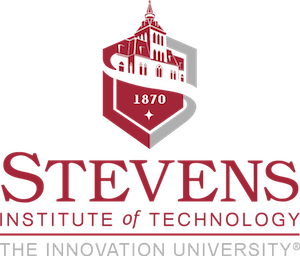Master of Science in Information Management

University of Illinois (Illinois) offers a Master of Science in Information Management that is designed as a flexible online master’s program.
Only three of the courses in the program are required:
- Information Modeling
- Data Statistical Models and Information
- Socio-technical Information Systems
Students are then afforded the freedom to tailor their degree to match their specific interests or follow one of two of Illinois’ professional pathways in data science and analytics or knowledge management and information consulting.
Graduates of this program report loving the customizability of the program for not only advancement in their career but a deeper sense of purpose in their career.
The University of Illinois is a public university with “very high research activity” according to Carnegie and ranks as one of the top 50 schools in the nation. This flagship university enrolls over 40,000 students and maintains a student-to-faculty ratio of 20:1. Their academic programming is world-renowned and their global ranking according to US News is 54.
Illinois is known for its programming in STEM subjects but some of its lesser-known accolades are equally impressive including in the arts and humanities.
What Jobs Can You Get With a Master’s in Management Information Systems?
 Management information systems degrees are versatile, multidisciplinary degrees that blend business, management, and technical courses.
Management information systems degrees are versatile, multidisciplinary degrees that blend business, management, and technical courses.
This selection of topics helps to prepare students for a range of positions that need some technical know-how, but that also need the ever-so-important understanding that technology only works when aligned with organizational objectives.
While an information technology or computer science degree may be more likely to gain you a job “making” new technology, management information systems employ the technology throughout an organization. They are also in charge of ensuring that technology projects make a meaningful impact within an organization.
Some of the most common jobs that master’s in management information systems graduates may obtain include:
- Systems Analyst
 Information Technology Project Manager
Information Technology Project Manager- Information Systems Manager
- Product Owner
- Business Analyst
- Business Intelligence Manager
- UX Researcher
- IT Sales Manager
The unique aspect of an MIS degree is that it provides you with many more directions in which you can go than more technical degrees. While you can continue to hone technical skills and move in that direction, the elements of business and management within your program can help to move you up the corporate ladder in other paths as well.
What is an MS in Management Information Systems?
 An MS in Management Information Systems degree is a professional master of science degree. Professional master’s are different from research master’s in that they tend to focus on applied learning that students can immediately take into the workplace.
An MS in Management Information Systems degree is a professional master of science degree. Professional master’s are different from research master’s in that they tend to focus on applied learning that students can immediately take into the workplace.
In research master’s, students are often preparing for a doctorate within the same subject, and are often required to complete a thesis (and sometimes teach courses). Oftentimes professional master’s are more career-centered and can be completed even more quickly.
MS in Management Information Systems typically requires 30-36 credit hours, and most programs can be completed within 2 years. While all courses of study require some core requirements, programs will differ in that some will give students a choice to choose from a wide range of electives, while others will provide a choice between prescribed specializations. Among specializations offered within management information systems degrees, some of the most common include:
 Cybersecurity
Cybersecurity- Application Development
- Mobile and Web Applications
- Logistics Information Systems
- Project Management
- Among Others
In Management Information Systems Master’s degrees, you’ll take some business coursework, some project management coursework, and a good number of technical courses.
Is MIS a STEM Degree?
 STEM stands for science, technology, engineering, and math. Generally speaking, many employers value STEM program graduates or simply graduates with STEM skills for their versatility and ability to problem solve.
STEM stands for science, technology, engineering, and math. Generally speaking, many employers value STEM program graduates or simply graduates with STEM skills for their versatility and ability to problem solve.
MIS degrees are multidisciplinary. The range of topics within most management information systems degrees means that not every course you’ll take within an MIS program will be under the STEM designation.
With that said, you will likely take courses in the following disciplines:
- Science: economics courses, business courses, psychology
- Technology: a wide range of courses
- Engineering: some courses depending on your track
- Math: graduate statistics in some programs
If you are particularly interested in a rigorous quantitative education through an MIS degree, then you may want to pursue a program that has a concentration related to data science. Common concentrations in this area are called business analysis, data analysis, or business intelligence tracks.
Additionally, some master’s in MIS programs do designate that they are entirely STEM programs. Browse through some of the offerings in OnlineCollegePlan’s ranking above to find STEM-centered MIS degrees that may fit your needs.
What Is the Purpose of Management Information Systems?
Management information systems is the study of organizations, technology, and people. This multidisciplinary field doesn’t just look at how to make technology “work,” but rather how to best isolate and solve real problems with technology.
 Skilled management information systems workers including data analysts, project managers, cybersecurity analysts, and more, are tasked with not only knowing the technical underpinnings of a set of technology products but seeing how they fit into the broader equation of personal and organizational use.
Skilled management information systems workers including data analysts, project managers, cybersecurity analysts, and more, are tasked with not only knowing the technical underpinnings of a set of technology products but seeing how they fit into the broader equation of personal and organizational use.
Put in other terms, the purpose of management information systems is to erect and maintain information systems that solve real problems. Today, nearly every component of every organization uses an information system of some sort. Accounting uses information systems to track expenses.
Sales teams use information systems to track leads and conversion. Management uses information systems to track the status of projects. Human Resources use information systems to onboard, hire, and fire employees. Cashiers use information systems to stock shelves and “check out” customers. And so forth.
 The job of information systems professionals is to ensure that this myriad of systems performs as expected. Furthermore, the job of information systems professionals is to make sure that information systems are progressing to solve not only problems we know we have but those we haven’t even realized we have yet.
The job of information systems professionals is to ensure that this myriad of systems performs as expected. Furthermore, the job of information systems professionals is to make sure that information systems are progressing to solve not only problems we know we have but those we haven’t even realized we have yet.
What is the Difference Between an MIS and an IT Degree?
 Information technology and management information systems are disciplines that may work on the same problems but from very different vantage points.
Information technology and management information systems are disciplines that may work on the same problems but from very different vantage points.
While information technology degrees are focused on questions related to how technology works (and how to fix it), management information systems degrees are interested in questions related to how businesses and people work with technology.
Management information systems wouldn’t be a particularly useful discipline without the many innovations created by information technology professionals.
With that said, the many innovative creations of information technology professionals wouldn’t work for organizations nearly as well without management information systems professionals.
As far as coursework differences between the two degree types, you’re much more likely to take the following courses in an MIS degree:
 Business
Business- Economics
- Data Analysis
- Project Management
With that said, there is a good deal of overlap. Many MIS programs offer specializations in areas that have traditionally been taught in IT programs. These include cybersecurity, information assurance, and networking technologies.
While you can work your way into many of the same positions with an MIS and IT degree, MIS degrees are more geared towards preparing analysts and managers, while IT degrees are more geared towards creating support workers, technicians, administrators, and technology specialists.
Need More? OnlineCollegePlan has it!
If you aren’t ready to commit to getting your online master’s degree in management information systems or simply want to check out other information about online college, feel free to use the links below or browse around.


 Chief Information Officer
Chief Information Officer
 Chief Information Officer
Chief Information Officer

 Florida State University offers a fully online Master of Science in Management Information Systems degree that places highly in our ranking due to the quality of instruction as well as adult-student-suited program design.
Florida State University offers a fully online Master of Science in Management Information Systems degree that places highly in our ranking due to the quality of instruction as well as adult-student-suited program design.


 The highly-regarded College of Engineering and Computer Science at the University of Michigan Dearborn offers one of the more technical online master’s programs in this year’s ranking.
The highly-regarded College of Engineering and Computer Science at the University of Michigan Dearborn offers one of the more technical online master’s programs in this year’s ranking.
 Concordia University-Wisconsin offers a unique online master’s program within our ranking, an MBA in management information systems. Among other choices in our ranking, students seeking additional coursework in the management and business sides of information systems should be particularly pleased with this program.
Concordia University-Wisconsin offers a unique online master’s program within our ranking, an MBA in management information systems. Among other choices in our ranking, students seeking additional coursework in the management and business sides of information systems should be particularly pleased with this program. George Washington University offers a particularly unique online master’s degree in their Master of Professional Studies in Cybersecurity Strategy and Information Management degree.
George Washington University offers a particularly unique online master’s degree in their Master of Professional Studies in Cybersecurity Strategy and Information Management degree.


 Embry-Riddle Aeronautical University – perhaps the most well-known university related to aviation and aerospace – provides its own unique take on the online master’s programs with its Master of Science in Management Information Systems degree.
Embry-Riddle Aeronautical University – perhaps the most well-known university related to aviation and aerospace – provides its own unique take on the online master’s programs with its Master of Science in Management Information Systems degree.
 Management information systems degrees are versatile, multidisciplinary degrees that blend business, management, and technical courses.
Management information systems degrees are versatile, multidisciplinary degrees that blend business, management, and technical courses. Information Technology Project Manager
Information Technology Project Manager An MS in Management Information Systems degree is a professional master of science degree. Professional master’s are different from research master’s in that they tend to focus on applied learning that students can immediately take into the workplace.
An MS in Management Information Systems degree is a professional master of science degree. Professional master’s are different from research master’s in that they tend to focus on applied learning that students can immediately take into the workplace. Cybersecurity
Cybersecurity STEM stands for science, technology, engineering, and math. Generally speaking, many employers value STEM program graduates or simply graduates with STEM skills for their versatility and ability to problem solve.
STEM stands for science, technology, engineering, and math. Generally speaking, many employers value STEM program graduates or simply graduates with STEM skills for their versatility and ability to problem solve. Skilled management information systems workers including data analysts, project managers, cybersecurity analysts, and more, are tasked with not only knowing the technical underpinnings of a set of technology products but seeing how they fit into the broader equation of personal and organizational use.
Skilled management information systems workers including data analysts, project managers, cybersecurity analysts, and more, are tasked with not only knowing the technical underpinnings of a set of technology products but seeing how they fit into the broader equation of personal and organizational use. The job of information systems professionals is to ensure that this myriad of systems performs as expected. Furthermore, the job of information systems professionals is to make sure that information systems are progressing to solve not only problems we know we have but those we haven’t even realized we have yet.
The job of information systems professionals is to ensure that this myriad of systems performs as expected. Furthermore, the job of information systems professionals is to make sure that information systems are progressing to solve not only problems we know we have but those we haven’t even realized we have yet. Information technology and management information systems are disciplines that may work on the same problems but from very different vantage points.
Information technology and management information systems are disciplines that may work on the same problems but from very different vantage points. Business
Business